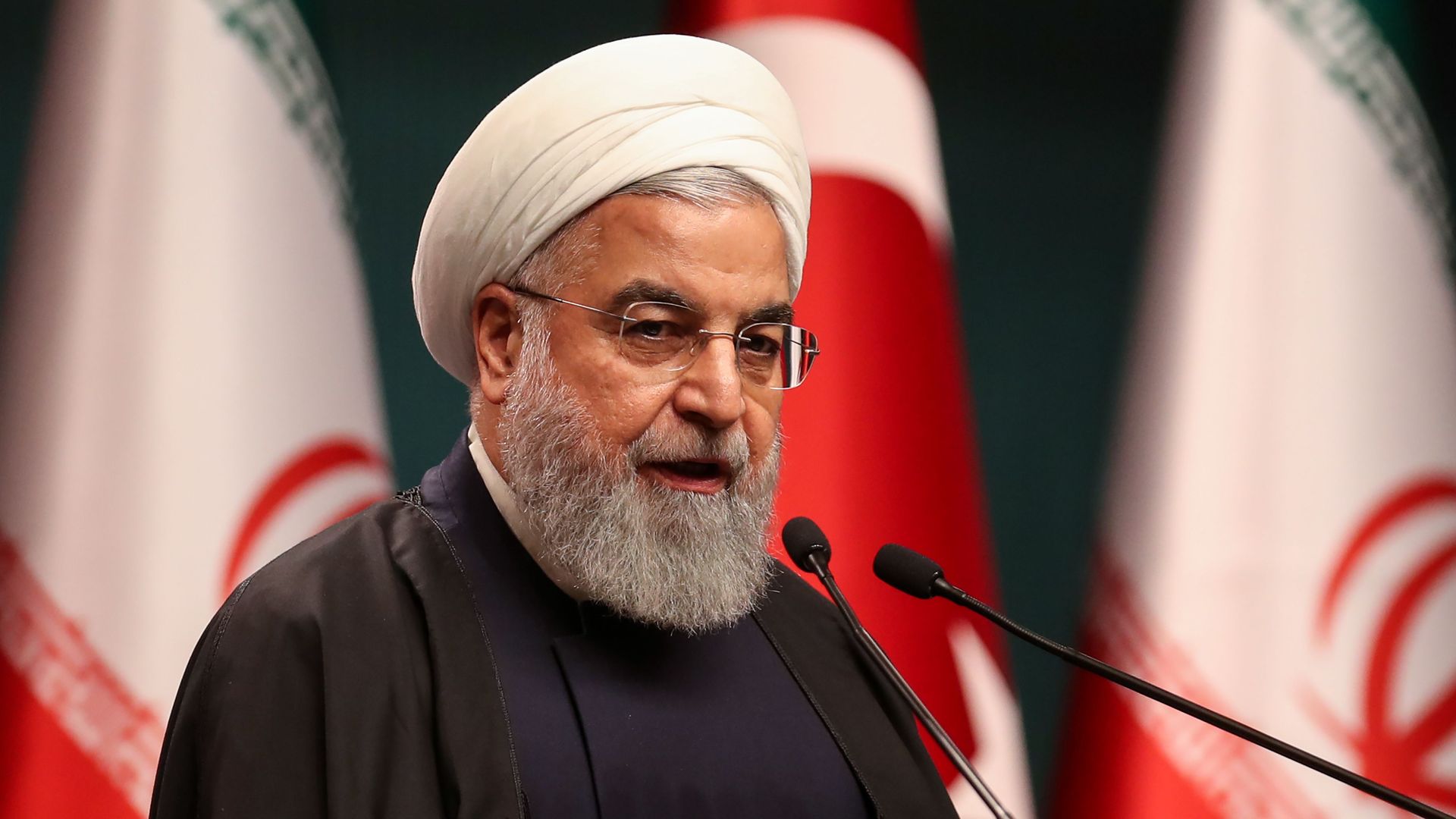
Iranian President Hassan Rouhani. Photo: Adem Altan/AFP via Getty Images
President Trump’s recent decision to withdraw the approximately 2,000 U.S. troops stationed in Syria signals that Washington is unwilling to challenge Iran in a theater of conflict that the Islamic Republic has invested heavily in for more than seven years. This will have significant consequences for Middle East security as well as the success of the administration’s Iran policy.
The big picture: Washington is currently in the throes of a maximum pressure campaign against Iran. But absent a military strategy to counter Iran’s support for regional destabilization, it will be relying on sanctions alone to change Iranian behavior — which is no easy task.
Background: According to Ambassador James Jeffrey, “The U.S. cannot dictate events in Syria, but by its presence can contest Iran’s (and Russia’s) freedom of action.”
- Tehran has stood by the Bashar al-Assad regime since the beginning of the war in Syria, marshaling countless Shiite militiamen as well as members of the Islamic Revolutionary Guard Corps to fight and die there.
- Iran is also trying to create a land bridge from Tehran to the Mediterranean, where it can more easily project power and transport men, money and munitions into war zones.
What’s next: Iranian officials have refrained from their traditional hyperbole in the immediate aftermath of the president’s announcement, but that may soon change. It is unknown what the fate of the U.S. strategy to counter Iran in Syria — which was recently reported to be economic — will be.
The bottom line: As Iran’s risk tolerance in the region grows, the Trump administration has undercut its own Iran policy by seeking to withdraw U.S. troops from Syria. This compounds the message of irresolution sent earlier this year by removing missile defenses and closing down diplomatic facilities. While Iran contemplates its response to reimposed sanctions, those who favor escalation against the U.S. will cite this American move as proof of weakness and seek to press their advantage.
Behnam Ben Taleblu is a research fellow at the Foundation for Defense of Democracies.
